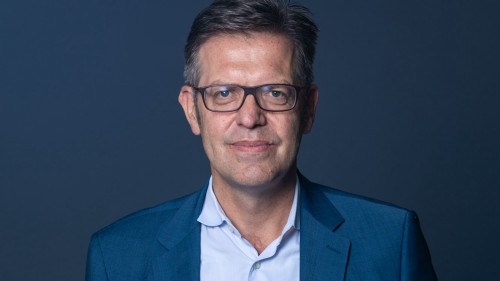re:publica 24
27-29th May 2024
STATION Berlin

Whether it's migration, wealth, diversity or climate protection – there are currently a lot of disputes in Germany (and beyond). This is not a bad thing in itself: our democratic system relies on constant negotiation and an exchange of differing opinions. But how can we find ways out of crises when seemingly irreconcilable sides confront each other and radical minorities take over protests? What do we do when people increasingly claim they no longer feel represented or heard by "those at the top" and when a well-meaning debate no longer seems possible?
Sociologist Steffen Mau examines the question of whether the different views on key issues are really that irreconcilable – especially because a divide can also be intentionally invoked. Together with his colleagues Thomas Lux and Linus Westheuer, he published the book "Triggerpunkte. Konsens und Konflikt in der Gegenwartsgesellschaft" (Trigger points. Consensus and conflict in contemporary society) in late 2023. In it, the authors find: "Social conflicts are never just there, they are also socially produced: ignited, fuelled, triggered." The conclusion: on the one hand, our society is not as deeply polarised as we think, as there is a far larger degree of consensus on many major issues. Most people have more in common than is often claimed, and extreme positions tend to be the exception. On the other hand, the debates suddenly intensify when certain controversies come into play: "Equality yes, but no gender-sensitive language please! Environmental protection yes, but who pays for the costs?" These "trigger points" can polarise and lead to a distorted picture.
Steffen Mau is Professor of Macrosociology at the Humboldt University of Berlin. Previously, he was Professor of Political Sociology in Bremen for 11 years. He studied at the Free University Berlin and earned his PhD at the European University Institute in Florence. His research focuses on social inequality, socio-structural change, Europeanisation, migration and borders. He is the author of various books such as "Sorting Machines. The Reinvention of Borders in the 21st Century" (2021) and the Spiegel bestseller "Lütten Klein. Leben in der ostdeutschen Transformationsgesellschaft" (Living in the East German transition society, 2019). He received the Leibniz Prize in 2021 and the Communicator Prize of the Deutsche Forschungsgemeinschaft (German Research Foundation) for his science communication in 2023. He was/is member of a number of committees, such as “The Expert Council on Integration and Migration”, the “Berlin-Brandenburg Academy of Sciences and Humanities” and the Academia Europea.
At #rp24, we look forward to Steffen's exciting input around old and new arenas of disparity.